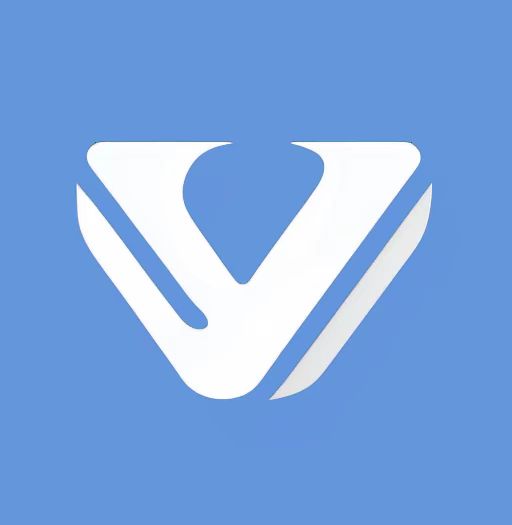Le glossaire ultime de la fabrication de vêtements

Temps de lecture estimé : environ 5 minutes
Introduction
The complete process of garment manufacturing depends on specific technical terms and traditional artisanal skills. Fashion designers factory managers and fabric buyers who learn these essential terms will enhance their communication and improve quality control and production efficiency.
1. Coupe et modélisme
- Coupe: The first step of turning pattern pieces into fabric cutouts for sewing preparation.
- Rédaction: The process of making paper patterns from design sketches for establishing measurements and proportions.
- Prototype:Un échantillon préliminaire de vêtement basé sur le modèle, utilisé pour tester l'ajustement et la conception.
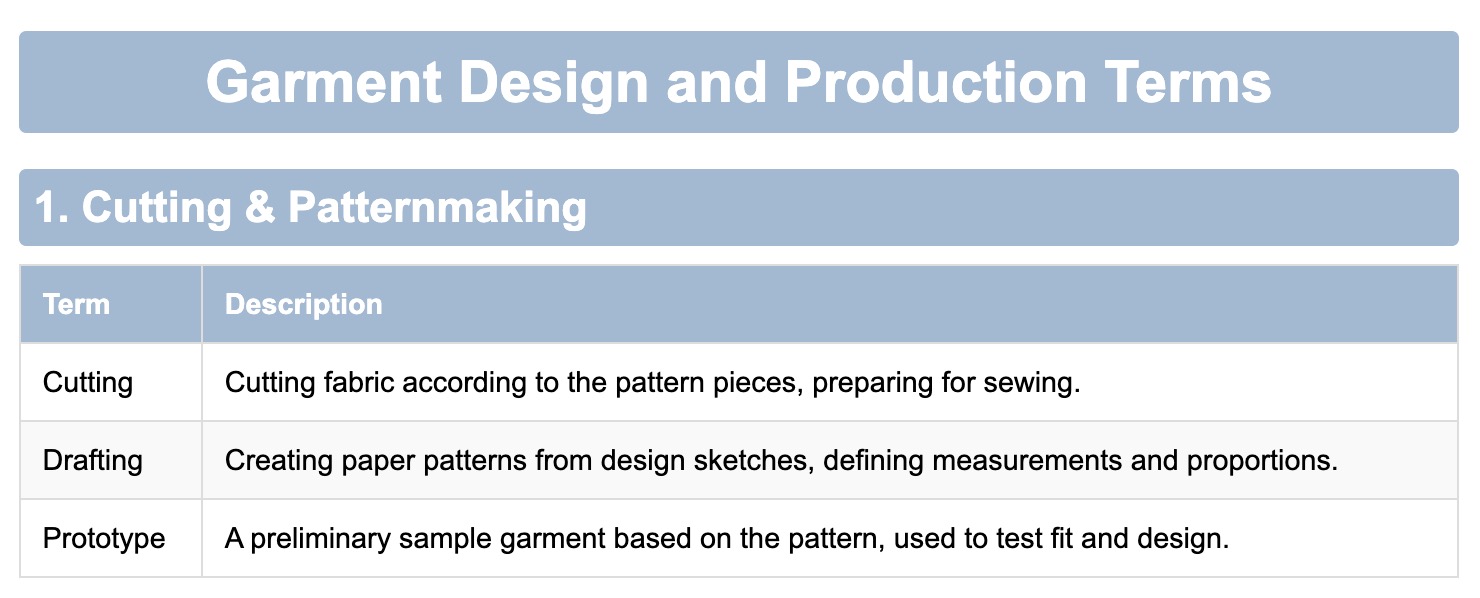
2. Techniques de couture
- Couture: Fabric joining occurs by machine or hand to build the garment.
- Marge de couture: The area where fabric edges meet before stitching preserves exact dimensions of the finished garment.
- Couture:Le joint cousu dans un vêtement, essentiel pour la résistance et l'apparence.
- Surjet:Utiliser une surjeteuse pour finir les bords bruts et éviter l'effilochage.
- Couture plate:Une couture plate et régulière souvent utilisée sur les joints internes pour plus de confort.
- Double point:Deux points parallèles pour une durabilité accrue et un effet décoratif.
- Obligatoire: Envelopper les surplus de couture avec une bande de tissu étroite pour une finition soignée.
- Surpiqûres:Couture décorative sur la surface du vêtement qui sécurise également les marges de couture.
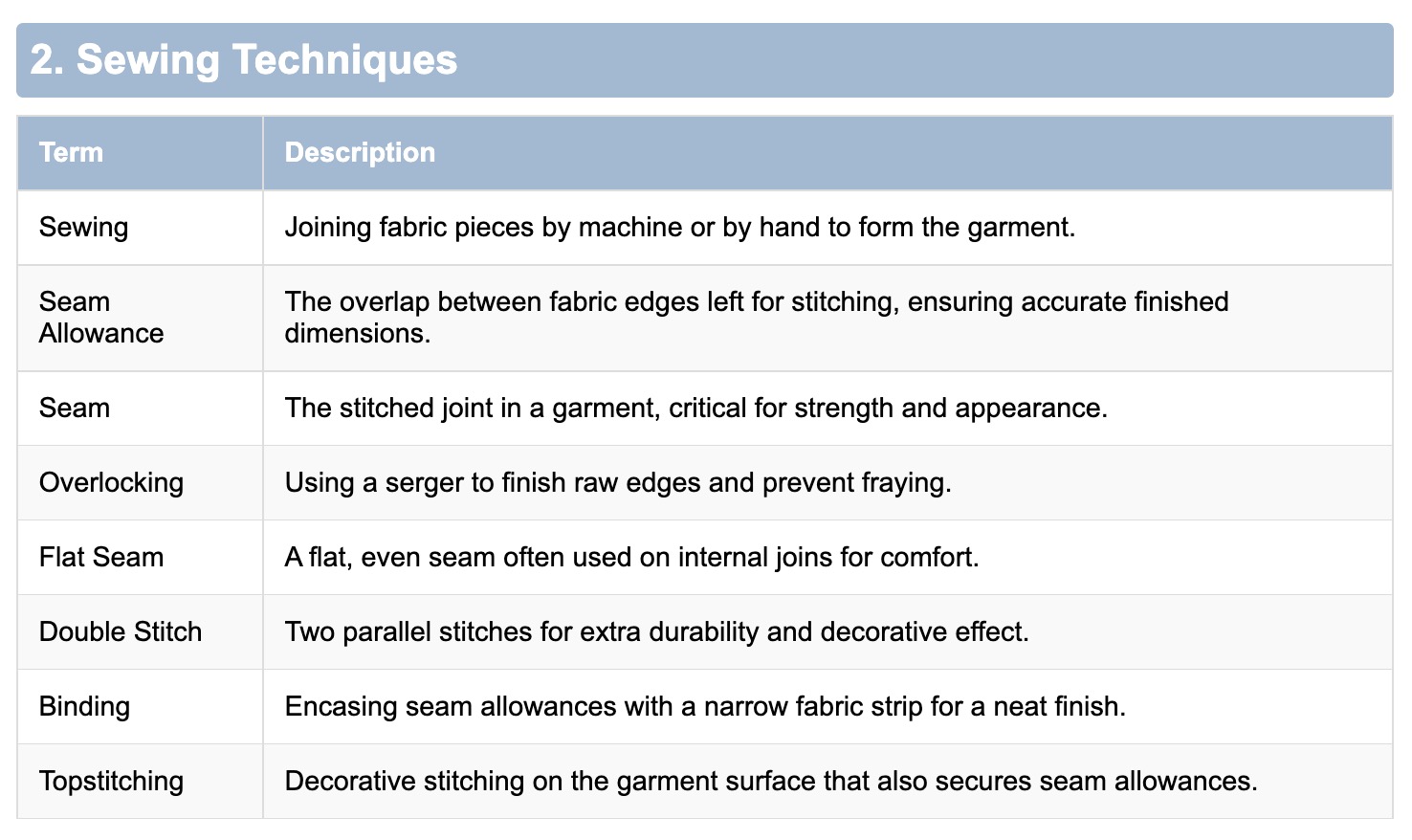
3. Détails et embellissements
- Fermeture éclair:Un élément de fermeture commun pour les vêtements et les poches.
- Bouton:Élément de fixation fixé par une boutonnière, disponible dans une myriade de styles.
- Boutonnière: L'ouverture cousue pour l'insertion de boutons, cousue à la machine ou à la main.
- Dard: Plis cousus dans le tissu pour façonner la silhouette du vêtement.
- Volant / Volant:Bords ondulés décoratifs qui ajoutent une touche romantique.
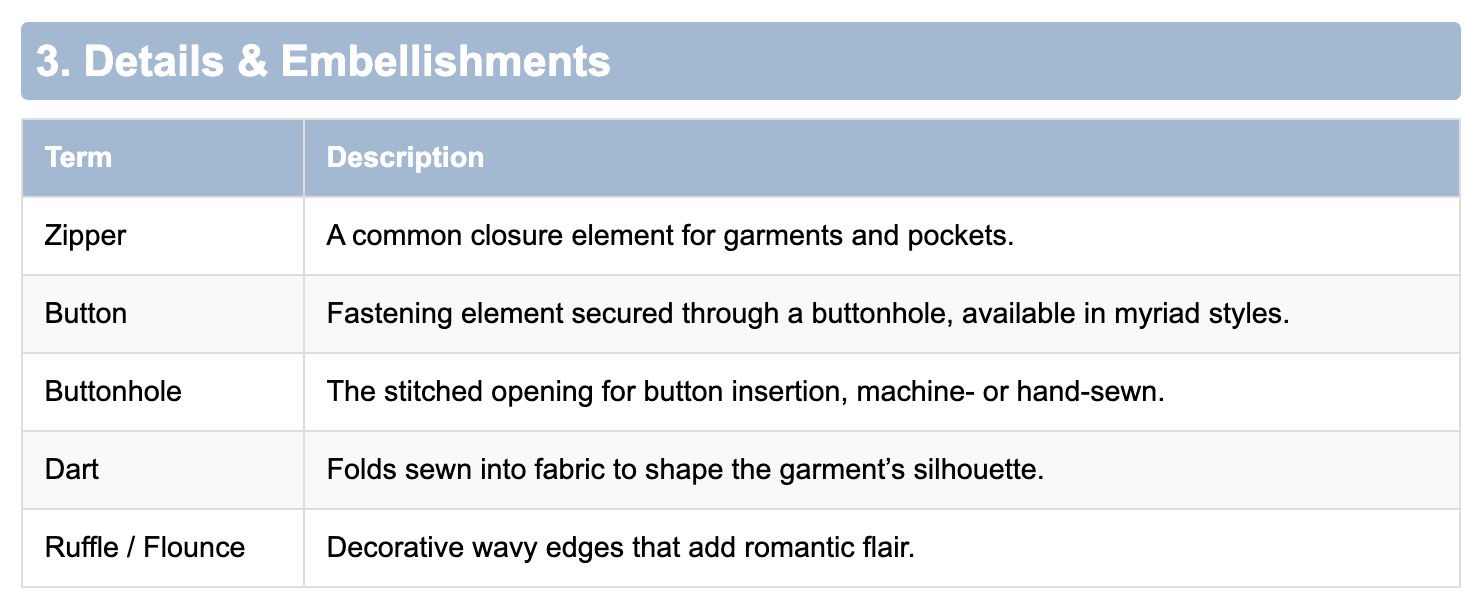
4. Structure et silhouette
- Collier:La conception et la forme de l'encolure du vêtement (par exemple, étalée, debout).
- Manche:Le style de couverture du bras (par exemple, raglan, bouffant).
- Taille:La position et la coupe au niveau de la taille du vêtement.
- Ourlet:Le bord inférieur fini d'un vêtement, plié ou cousu.
- Garniture:Couche intérieure en tissu pour plus de confort et un drapé amélioré.
- Épaulière: Rembourrage inséré au niveau des épaules pour créer de la structure.
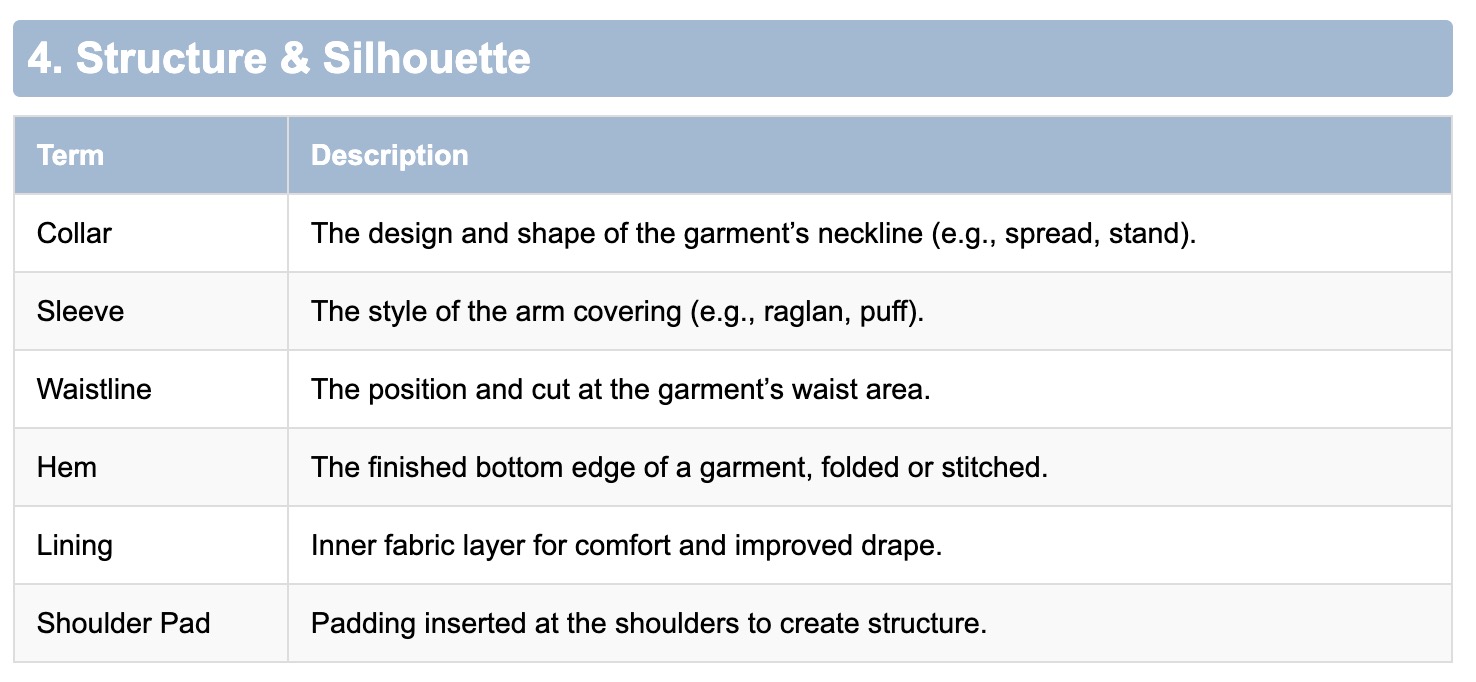
5. Production et personnalisation
- Tissu:Le matériau principal d'un vêtement, comprenant des fibres naturelles et synthétiques.
- Garnitures:Matériaux supplémentaires tels que des fermetures à glissière, des boutons et de la dentelle pour l'esthétique ou la fonction.
- Production de masse:Processus de fabrication à grande échelle axé sur le coût et l'efficacité.
- Sur mesure:Vêtements adaptés aux mesures et préférences individuelles.
- Repassage:Appuyer sur le vêtement pour lisser les plis et fixer les plis.
- Contrôle de la qualité: Vérification des vêtements finis pour détecter les défauts, la précision de la taille et la cohérence des couleurs.
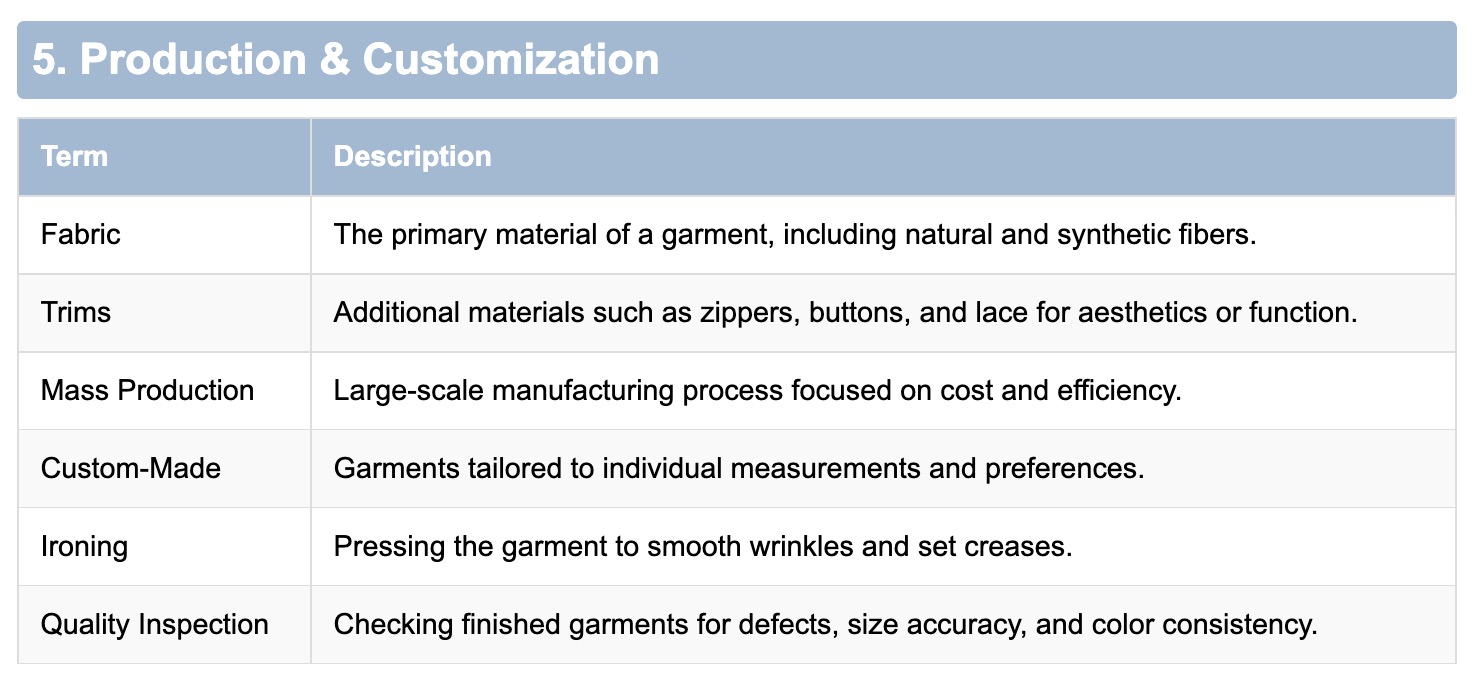
Appel à l'action
Rehaussez votre prochaine collection avec des tissus haut de gamme et des services sur mesure !
Contactez-nous → Ly Denim
- Demandes de vente : malone@lydenim.com
- Visitez-nous : www.lydenim.com
